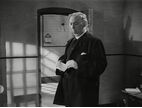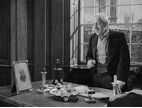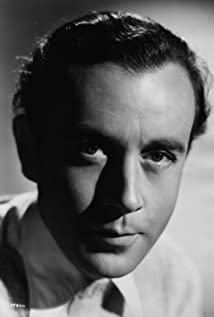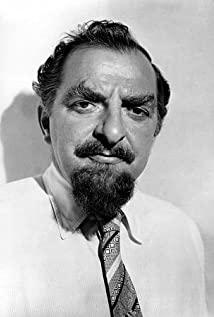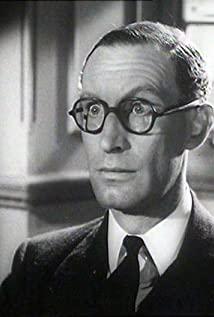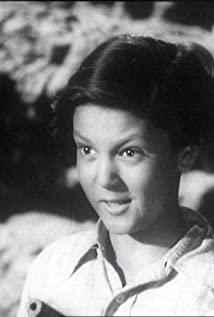Translation: hoffman
In the years after the end of World War II, the British Ealing Film Studio produced a series of comedy films. The comical humor, gentle and cynical style of these films made "Ealing comedy". These four characters became a unique sign. Among them, many films are starring Alec Guinness. Guinness was in his thirties, and his appearance was so unremarkable that an acting teacher before him said to him, "You can never be a bad actor." Continued into his old age. Once, in order to try on a play, he pretended to be Hitler and went out, but the police passing by him didn't even notice him. Other great British actors of Guinness’s contemporaries — Lawrence Oliver, John Gilgood and Ralph Richardson — drew crowds wherever they went, and according to Guinness, he even went No one in the movie asked him for an autograph.
Guinness may be a humble person in life, but he has portrayed a series of compelling characters on the screen, and each character is new and unconventional. He was the shy and slurred Herbert Parker in "Great Expectations" (1946), and two years later he became the demonic Fagin in "Orphan Twist". He is the bridge bomber in "The Bridge on the River Kwai" (1957), the weird painter in "Fortune Stars" (1958), the happy lieutenant colonel in "The Flute Shakes the Army" (1960) and the movie " The vacuum cleaner salesman in "The Havana Specialist." He is also a desert prince in "Lawrence of Arabia" (1962), a Soviet officer in "Doctor Zhivago" (1965), and a calm Indian professor in "A Trip to India" (1984). He was also Cromwell (1) , Disraeli, Father Brown, Scrooge, and of course Hitler. It's no wonder that the name of his autobiography is "Born with a Thousand Faces". Guinness’s most well-known role is Obi-Wan in the "Star Wars" series of films, which is actually unfair. Guinness once told me that it was boring to play Obi-Wan, because most of the time he stood alone in front of a rear projection screen reciting lines.
Special effects like Star Wars are superfluous in "Benevolence and Crown" (1949). In the film, Guinness plays eight different members of the same family with subtle differences in makeup, posture, and behavior. They are male and female, and the age span is as long as 60 years. It is precisely because of Guinness's mediocrity that he can shape anyone. In "Benevolence and Crown", some of his characters are arrogant, some are stupid and ridiculous, some are insignificant, but some are also kind and friendly. ("I'm very pleased," the protagonist said when talking about his employer, the banker Ascone, "he treated me so well, I finally don't have to get rid of him.")
"Benevolence and Crown" kicked off a series of classic "Elling Comedy" prelude, followed by movies such as "Thug of Lavender Hill", "Man in White" (both released in 1951) and "Dr. Thieves" ( 1955). In "Doctor Thieves", a cute little old lady thinks her new tenants are musicians, but in fact they are all villains, and their music rehearsal is full of humor. When I was in London in August 2002, all these Ealing comedies were rescreened. The big screen highlights the texture of black and white photography. The photography of "Benevolence and the Crown" seems to be partly borrowed from "Citizen Kane", which also uses flashbacks and narration.
The beginning of "Benevolence and the Crown" shows us Louis Mazzini, played by Dennis Price, a new duke trying to rise to the throne by murdering the heirs one by one. On the last night before he was hanged, Louis wrote his memoir, and following his reading, we traced his life back. We learned that Louis' mother was originally the daughter of the Duke of Charfonte. When she eloped with an Italian tenor, her family, the Ascone family, severed her relationship. On the day Louis was born, his tenor father passed away, and his mother tried to fix things with the family, but was indifferently rejected. As a result, the mother and the son were reduced to living a miserable life while pretending to be decent. However, the mother always had hope that Louis might inherit the title of duke (the Ascone family's title was passed down to both male and female). After her mother's death, the Ascone family did not allow her to be buried in the family cemetery. Louis had to bury her mother in a "terrible country cemetery". He vowed to avenge the Ascone family.
Louis posted the genealogy of the family on the back of a painting of his mother, which depicts the mansion of the Ascone family, where his mother spent a happy teenage time. Whenever someone in the family died, Louis would cross out that person's name from the genealogy. "A lucky diphtheria infection" ruled out a competitor for Louis, but he had to solve some other rivals himself. He spent six pence to visit the family castle and said sadly: "It's really hard to get rid of those you hate cleanly."
The murderer played by Price is impeccable: elegant manners, decent talk, and a deep understanding of the way of speaking and doing things, which allowed him to get a job in the family bank, and his uncle banker showed him Sympathy. The uncle and all other members of the Ascone family were played by Guinness (this list includes the duke, banker, priest, general, admiral, young Ascone de Ascone, The young Henry and Countess Agatha de Ascone). What's interesting is that although these characters are obviously related to the same clan, it is not easy to see the shadow of Guinness from them, unless we insist on thinking that these people are Guinness when we look at them. In order to help Guinness achieve the "clone" effect, director Robert Hammer used a technique. When he was shooting Guinness, most of them took the long shots and the middle shots, and basically did not take close-ups, so that the audience would not be able to distinguish them carefully.
Guinness played the members of the Ascone family, whether tall or short, hunched over, young and old, mainly through body language and some wigs or beards. In most of the scenes, the focus is always on the young Louis, so this may be useful. In any case, it is important not to let Guinness, who plays the octagonal character, dominate the scene. After all, this is not a movie about him.
The murder method used by Louis in the film echoes the theme of George Orwell's famous prose "The Decline of British Murder" (1946). In that essay, Orwell was disappointed that modern murder was done with only guns. He examined "the most fun murder case for the British public" and affirmed the careful planning of early British murders and discovered that the poison was More commonly used methods, and an ideal murderer is a middle class who wants to improve social status or gain inheritance.
"Benevolence and Crown", set in about 1900, fits Orwell's standards very well. One member of the Ascone family was poisoned, another was killed while drinking tea, and another man’s boat was untied by Louis when it was moored. As a result, he was taken with him. The boat was washed down the waterfall. (The man on the boat was having a weekend tryst with his mistress. Louis commented: "I am sorry for this lady's death, but when I think that she might not even die this weekend, I am relieved.") Among them, my favorite murder was against the Countess de Ascone, who was fighting for women's right to vote. She was parading in a hot air balloon and was shot down by Louis. Louis said, "I shot an arrow into the air/she fell to the ground in Berkeley Square."
In the process of Louis becoming knighted, he also had a love affair with two women at the same time, one woman is what he loves, and the other woman is what he needs. Sibela (Joan Greenwood) is the daughter of the family where Louis was boarding after her mother died. Although she liked Louis, she married a boring man because she felt that Louis had no future. After marriage, she kept coming to find Louis. Greenwood's performance is very cute, she is a bit slurred, and a bit lazy and headstrong. Another woman Edith (played by Valerie Hobson) is the wife of a member of the Ascone family who was removed by Louis. She has advantages in money and social status. Although the unethical Louis loves Sibela, he empathizes with Edith.
Although there are murders, calculations, betrayals, and feuds in "Benevolence and Crown", the memoir format in the film still reveals a cold humor and a transcendent temperament. Louis deliberately maintains his evil deeds. Distance. The indifference suffered by his mother stung Louis, and he was convinced that the Ascone family deserved it. The film's unusual reliance on narration is objective and unassuming, which is very different from the sensational murders in the film, and this difference makes the film more interesting. Murder, as Louis demonstrated, can also be very easy and enjoyable, as long as the story revolves around the weirdness of the villain, rather than the uncomfortable details of the crime itself, presumably Orwell will agree with this.
Note: The title of the movie comes from a poem written by Tennyson. His suggestion is what Louis should have followed: "Benevolence is more valuable than a crown, and faith is better than blood."
Annotation: The movies corresponding to the names of people here and thereafter are:
(1) "Cromwell" (1970), in which Ginnis played the role of Oliver Cromwell, the leader, politician, and military strategist of the British bourgeois revolution in the 17th century.
(2) "The Mud Digger" (1950), in which Ginnis played the role of British Prime Minister Benjamin Disraeli.
(3) "Father Brown" (1954), in the film Ginnis played the protagonist of the same name, the role is a famous detective by the British writer GK Chesterton.
(4) "A Christmas Carol" (1970), in which Ginnis plays the protagonist of the same name, the role is the famous miser in Dickens's novel "A Christmas Carol".
(5) "The Last Ten Days of Hitler" (1973), in which Ginnis played the Nazi head of state.
View more about Kind Hearts and Coronets reviews




